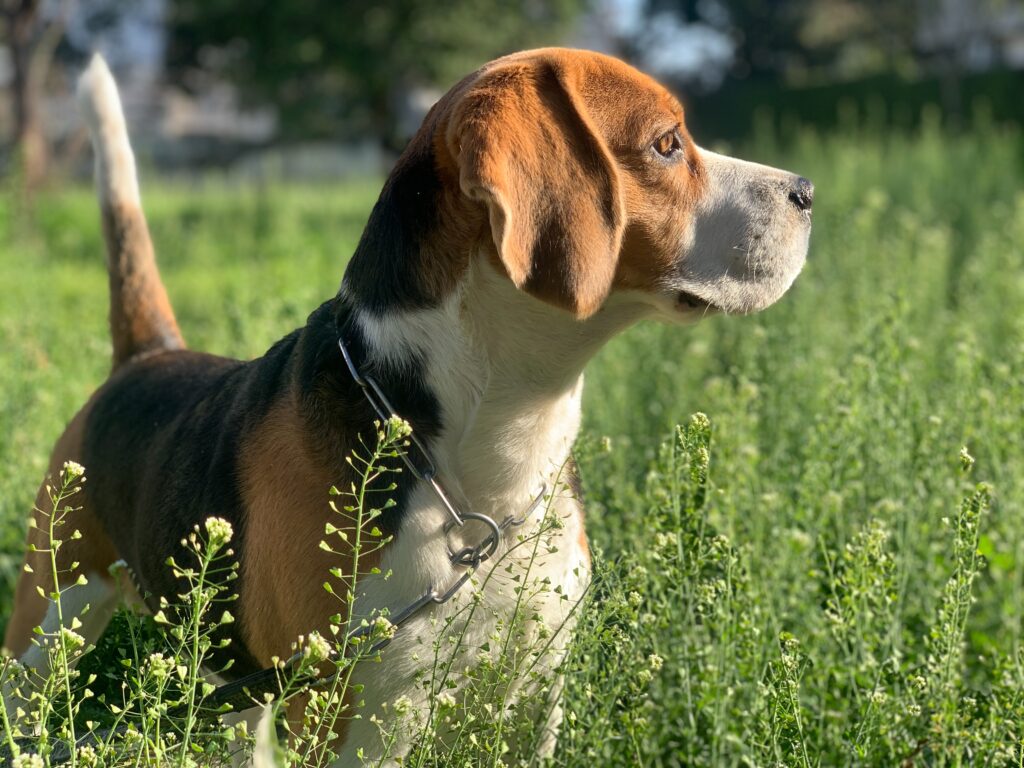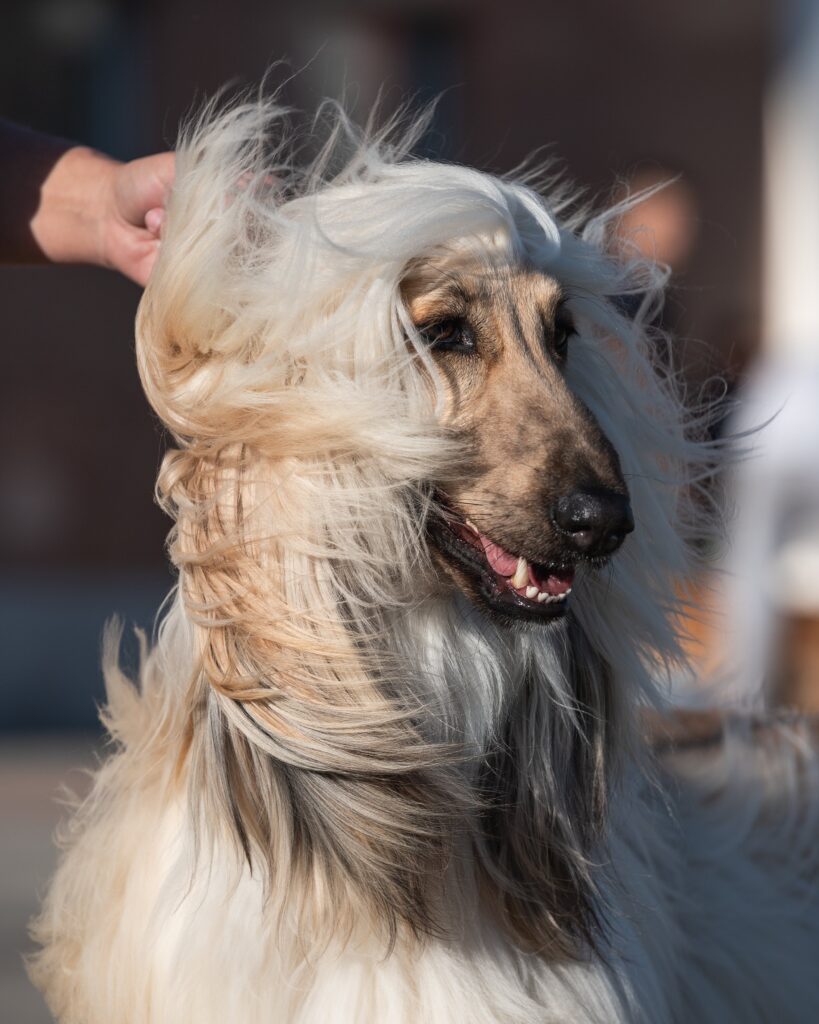Hunting dogs have been a part of human civilization for thousands of years. They have played a crucial role in assisting hunters in tracking, flushing out, and retrieving game. The history of hunting dogs can be traced back to ancient times when humans first started hunting for survival. Over time, specific breeds were developed to excel in different types of hunting, such as upland game hunting, waterfowl hunting, big game hunting, and small game hunting.
The importance of hunting dogs in hunting cannot be overstated. These dogs possess a unique set of characteristics that make them well-suited for the task at hand. They have a keen sense of smell, excellent stamina, and the ability to work in various terrains and weather conditions. Hunting dogs are not only valuable companions but also indispensable tools that enhance the overall hunting experience.
The Characteristics of Hunting Dogs
Hunting dogs possess distinct physical and behavioral characteristics that make them well-suited for their role. Physically, they are built for endurance and agility. They have strong muscles, a well-developed sense of smell, and sharp eyesight. Their coats are often weather-resistant to protect them from harsh conditions in the field.
Behaviorally, hunting dogs are highly trainable and have a strong desire to please their owners. They are intelligent and quick learners, making them easy to train for specific tasks. Hunting dogs also exhibit high levels of energy and enthusiasm, which is essential for long days in the field.
In terms of temperament, hunting dogs are typically friendly, loyal, and sociable. They get along well with other dogs and are often good with children. However, it is important to note that individual temperament can vary within breeds, so it is crucial to choose a dog with the right temperament for your specific needs.
The Different Types of Hunting Dogs
There are several different types of hunting dogs, each bred for specific purposes. These include pointers, retrievers, hounds, and setters.
Pointers are known for their ability to locate and point out game birds. They have a keen sense of smell and a natural instinct to freeze in place when they detect the scent of game. Popular pointer breeds include the German Shorthaired Pointer, English Pointer, and Brittany.
Retrievers are skilled at locating and retrieving game, particularly waterfowl. They have a soft mouth and are trained to bring back the game without damaging it. Labrador Retrievers, Chesapeake Bay Retrievers, and Golden Retrievers are some of the most popular retriever breeds.
Hounds are known for their exceptional sense of smell and tracking abilities. They are often used for hunting big game such as deer or boar. Bloodhounds, Coonhounds, Plott Hounds, and Black and Tan Coonhounds are some of the popular hound breeds.
Setters are bred to locate game birds and then freeze in place, known as “setting,” to allow the hunter to approach and flush out the birds. English Setters, Irish Setters, and Gordon Setters are some of the well-known setter breeds.
The Best Breeds for Upland Game Hunting
Upland game hunting refers to hunting birds such as pheasants, quail, grouse, and partridge in fields or upland areas. The best breeds for upland game hunting are those that have a strong sense of smell, good stamina, and the ability to work closely with their handlers.
The English Springer Spaniel is a versatile breed that excels in upland game hunting. They have a keen sense of smell and are known for their ability to flush out birds from dense cover. German Shorthaired Pointers are another popular choice for upland game hunting due to their excellent scenting abilities and versatility in different terrains. Brittany dogs are highly energetic and have a natural instinct for hunting birds, making them well-suited for upland game hunting. English Setters are known for their elegant appearance and ability to locate and point out game birds.
The Best Breeds for Waterfowl Hunting
Waterfowl hunting involves hunting ducks and geese in wetland areas such as marshes, lakes, and rivers. The best breeds for waterfowl hunting are those that are excellent swimmers, have a strong retrieving instinct, and can withstand cold water conditions.
Labrador Retrievers are widely regarded as one of the best breeds for waterfowl hunting. They have a strong retrieving instinct, excellent swimming abilities, and a waterproof coat that keeps them warm in cold water. Chesapeake Bay Retrievers are known for their endurance and ability to work in harsh weather conditions. Golden Retrievers are friendly, intelligent, and have a natural instinct for retrieving game. Irish Water Spaniels are versatile dogs that excel in both upland game hunting and waterfowl hunting.
The Best Breeds for Big Game Hunting
Big game hunting involves hunting large animals such as deer, elk, or boar. The best breeds for big game hunting are those that have a strong sense of smell, excellent tracking abilities, and the stamina to cover long distances.
Bloodhounds are renowned for their exceptional sense of smell and tracking abilities. They are often used in search and rescue operations as well. Coonhounds are versatile dogs that excel in tracking and treeing game such as raccoons or bears. Plott Hounds are known for their endurance and determination when tracking big game. Black and Tan Coonhounds have a keen sense of smell and are often used in trailing or treeing game.
The Best Breeds for Small Game Hunting
Small game hunting involves hunting animals such as rabbits, squirrels, or hares. The best breeds for small game hunting are those that have a strong prey drive, good scenting abilities, and the agility to navigate through dense cover.
Beagles are popular choices for small game hunting due to their excellent scenting abilities and compact size. Basset Hounds have a keen sense of smell and are known for their ability to track game in dense cover. Dachshunds are low to the ground and have a strong prey drive, making them well-suited for hunting small game. Jack Russell Terriers are energetic and fearless, making them excellent hunters for small game.
Training Hunting Dogs: Tips and Techniques
Training hunting dogs requires a combination of basic obedience training and specific hunting training. Basic obedience training includes commands such as sit, stay, come, and heel. This foundation is essential for establishing control and ensuring the safety of both the dog and the handler in the field.
Specific hunting training involves teaching the dog to perform tasks such as tracking, flushing out game, or retrieving. Positive reinforcement techniques, such as rewards and praise, are highly effective in training hunting dogs. Consistency, patience, and repetition are key to successful training.
Caring for Hunting Dogs: Nutrition and Health
Proper nutrition is crucial for hunting dogs to maintain their energy levels and overall health. High-quality dog food that is specifically formulated for active dogs is recommended. It is important to provide a balanced diet that includes protein, carbohydrates, fats, vitamins, and minerals.
Common health issues in hunting dogs include joint problems, ear infections, skin allergies, and tick-borne diseases. Regular veterinary check-ups are essential to monitor the dog’s health and address any potential issues early on. Preventative measures such as vaccinations, flea and tick prevention, and regular grooming can help keep hunting dogs healthy.
Choosing the Right Hunting Dog for You
When choosing a hunting dog, it is important to consider factors such as the type of hunting you plan to do, the dog’s breed and temperament, and your own experience and preferences. Matching the dog’s breed and temperament to the type of hunting is crucial for a successful partnership in the field.
Hunting with a well-trained hunting dog can greatly enhance the overall hunting experience. These dogs not only assist in locating and retrieving game but also provide companionship and a sense of camaraderie. The bond between a hunter and their hunting dog is a special one that is built on trust, teamwork, and shared experiences in the great outdoors.
If you’re interested in hunting with dogs, you may also want to check out this article on how to get your dog to come to you. It’s a comprehensive guide that provides tips and techniques for training your dog to respond to your commands, which is essential for hunting. Whether you’re a seasoned hunter or just starting out, having a well-trained dog by your side can greatly enhance your hunting experience. So, if you want to improve your dog’s recall skills and ensure a successful hunt, be sure to give this article a read. (source)



